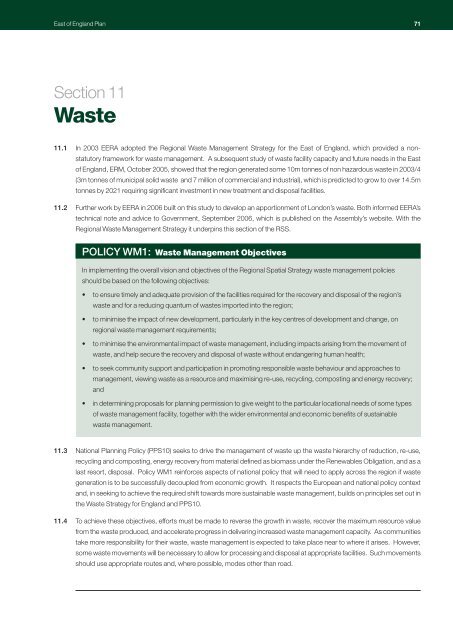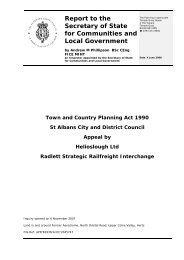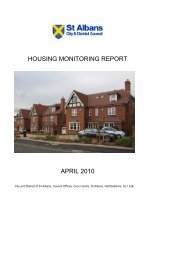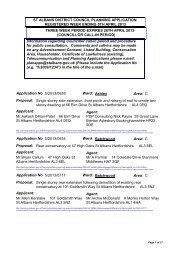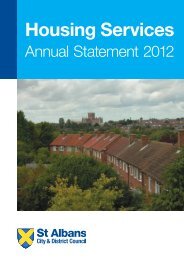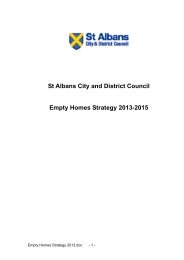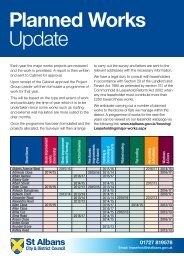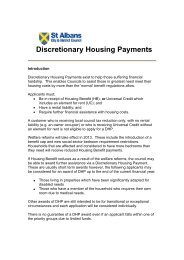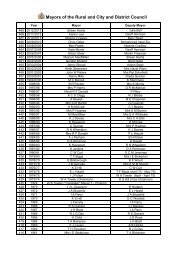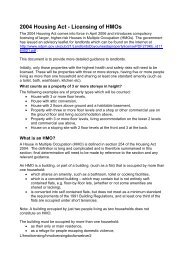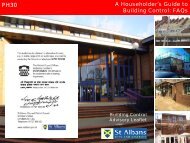RSS East Of England Plan - Broads Authority
RSS East Of England Plan - Broads Authority
RSS East Of England Plan - Broads Authority
Create successful ePaper yourself
Turn your PDF publications into a flip-book with our unique Google optimized e-Paper software.
<strong>East</strong> of <strong>England</strong> <strong>Plan</strong> 71<br />
Section 11<br />
Waste<br />
11.1 In 2003 EERA adopted the Regional Waste Management Strategy for the <strong>East</strong> of <strong>England</strong>, which provided a nonstatutory<br />
framework for waste management. A subsequent study of waste facility capacity and future needs in the <strong>East</strong><br />
of <strong>England</strong>, ERM, October 2005, showed that the region generated some 10m tonnes of non hazardous waste in 2003/4<br />
(3m tonnes of municipal solid waste and 7 million of commercial and industrial), which is predicted to grow to over 14.5m<br />
tonnes by 2021 requiring significant investment in new treatment and disposal facilities.<br />
11.2 Further work by EERA in 2006 built on this study to develop an apportionment of London’s waste. Both informed EERA’s<br />
technical note and advice to Government, September 2006, which is published on the Assembly’s website. With the<br />
Regional Waste Management Strategy it underpins this section of the <strong>RSS</strong>.<br />
POLICY WM1: Waste Management Objectives<br />
In implementing the overall vision and objectives of the Regional Spatial Strategy waste management policies<br />
should be based on the following objectives:<br />
• to ensure timely and adequate provision of the facilities required for the recovery and disposal of the region’s<br />
waste and for a reducing quantum of wastes imported into the region;<br />
• to minimise the impact of new development, particularly in the key centres of development and change, on<br />
regional waste management requirements;<br />
• to minimise the environmental impact of waste management, including impacts arising from the movement of<br />
waste, and help secure the recovery and disposal of waste without endangering human health;<br />
• to seek community support and participation in promoting responsible waste behaviour and approaches to<br />
management, viewing waste as a resource and maximising re-use, recycling, composting and energy recovery;<br />
and<br />
• in determining proposals for planning permission to give weight to the particular locational needs of some types<br />
of waste management facility, together with the wider environmental and economic benefits of sustainable<br />
waste management.<br />
11.3 National <strong>Plan</strong>ning Policy (PPS10) seeks to drive the management of waste up the waste hierarchy of reduction, re-use,<br />
recycling and composting, energy recovery from material defined as biomass under the Renewables Obligation, and as a<br />
last resort, disposal. Policy WM1 reinforces aspects of national policy that will need to apply across the region if waste<br />
generation is to be successfully decoupled from economic growth. It respects the European and national policy context<br />
and, in seeking to achieve the required shift towards more sustainable waste management, builds on principles set out in<br />
the Waste Strategy for <strong>England</strong> and PPS10.<br />
11.4 To achieve these objectives, efforts must be made to reverse the growth in waste, recover the maximum resource value<br />
from the waste produced, and accelerate progress in delivering increased waste management capacity. As communities<br />
take more responsibility for their waste, waste management is expected to take place near to where it arises. However,<br />
some waste movements will be necessary to allow for processing and disposal at appropriate facilities. Such movements<br />
should use appropriate routes and, where possible, modes other than road.


